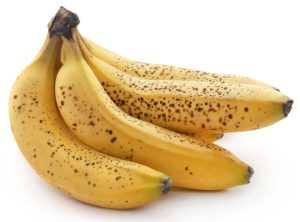
If you suffer from obstructive sleep apnea, you are probably already taking steps to manage your condition. You might use a custom oral appliance, sleep on your side, and be diligent about keeping allergens in your home to a minimum. However, there is even more you can do. Let’s talk about some foods that have the potential to worsen your symptoms. Cutting back on them might just help you sleep better!
Bananas
Bananas are wonderful in a lot of ways. They are both nutritious and tasty. Sadly, though, they are not a great snack for people with obstructive sleep apnea (OSA). They increase mucus production in the throat and mouth, which can worsen breathing while you sleep. If you choose to keep eating bananas, try to stick to ones that are a little on the green side. Riper, sweeter bananas tend to contribute more to mucus production.
Refined Carbohydrates
Many carbohydrate sources, such as whole grains, can benefit your health. Unfortunately, refined carbohydrates are a different story. Sugar, in particular, can worsen sleep apnea. It triggers an inflammatory response in the body that can adversely affect the quality of your nighttime breathing. It’s also worth keeping in mind that overconsumption of refined carbs can be a big contributor to weight gain, and obesity is a major risk factor for sleep apnea.
High-Fat Dairy
It is commonly believed that high-fat dairy products increase mucus production. However, that isn’t strictly true. They do create a sort of “thick” feeling in the mouth, but they do not actually increase mucus. With that being said, it is worth noting that some people notice an improvement in the quality of their sleep after they cut back on high-fat dairy products, such as whole milk, butter, and heavy cream.
Alcohol
Some people who have difficulty falling asleep sip on a nightcap to help them relax. However, while alcohol might make you fall asleep faster, it can actually interfere with the quality of your rest. It may lessen the amount of time you spend in REM sleep. Also, because it is a central nervous system depressant, it slows down brain activity and causes muscles throughout the body to relax — including the muscles in the throat that can cause airway blockages while you sleep. If you choose to consume alcohol, you should have your last drink at least a few hours before bedtime so your body has time to fully (or mostly) metabolize it before you go to sleep.
Are you looking for easy ways to manage your OSA? A few minor dietary adjustments might be just what you need to enjoy higher-quality rest.
Meet the Sleep Apnea Expert
Dr. Mitch Conditt has more than 35 years of experience in dentistry. In recent years, he has devoted himself exclusively to helping people cope with sleep apnea and TMJ disorder. If you are struggling with OSA or are curious about alternatives to CPAP therapy, he would be happy to speak with you. Contact our practice at 817-527-8500.
